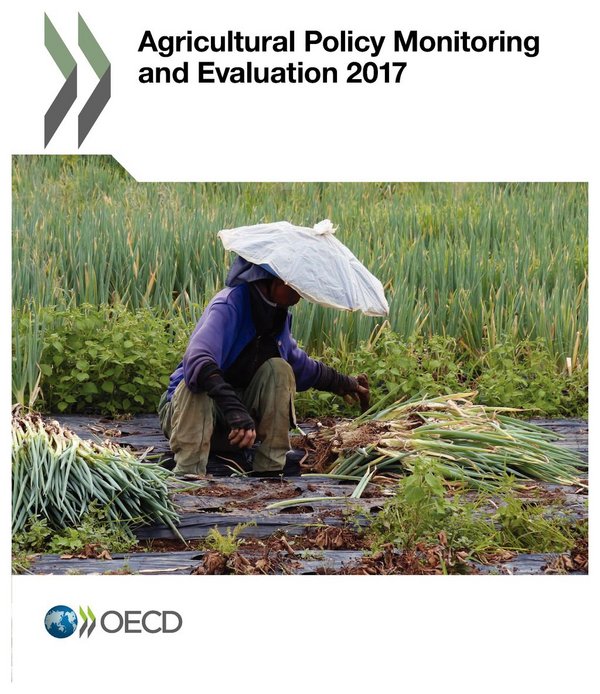- Share this article
- Subscribe to our newsletter
Agricultural Policy Monitoring and Evaluation 2017
Agricultural Policy Monitoring and Evaluation 2017 was published by the Organisation for Economic Co-operation and Development (OECD) in June 2017. The annual publication monitors and evaluates agricultural policies across numerous countries.
This year’s report includes all OECD and EU countries, as well as eleven emerging economies: Brazil, the People’s Republic of China, Colombia, Costa Rica, Indonesia, Kazakhstan, the Philippines, Russian Federation, South Africa, Ukraine and Viet Nam. Overall, the 52 countries covered by the report account for about two-thirds of global agricultural value-added.
The report finds that while there are a number of shared goals for the agricultural sector across OECD and emerging economies, more can be done to align support to agriculture with the underlying objectives of government intervention, and that market distortions, while falling on average, remain significant.
In 2016, around 16 per cent of gross farm receipts were rooted in policies that support farmers. The monetary value of this support was USD 508 billion in 2016, down from USD 517 billion in 2015.
Almost 60 per cent of all farm support is generated by maintaining prices on domestic markets higher than those on international markets. Direct payments to farmers are increasingly used either to support farm incomes or, on a lower scale, to compensate or to encourage farmers to produce non-market goods or services.
The authors of the report recommend reducing market price support in order to ensure a well-functioning domestic market and international trading system, and to enhance food security for the poorest.
Furthermore, they recommend that countries should put greater effort into supporting key general services for the agricultural sector where these demonstrate net benefits for their societies. Redirecting producer support to general services can also provide a pathway for the sector to transition away from production- and trade-distorting forms of support.
(OECD/ile)





Add a comment
Be the First to Comment